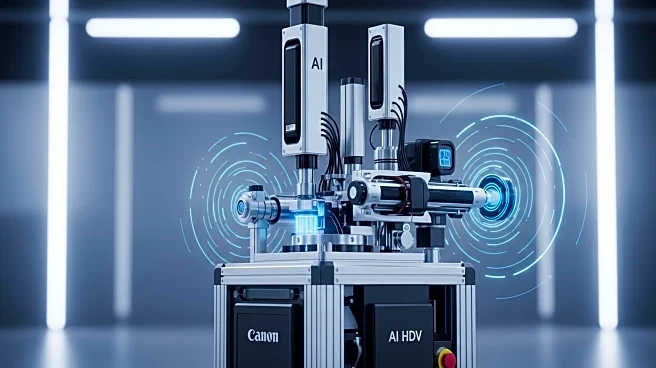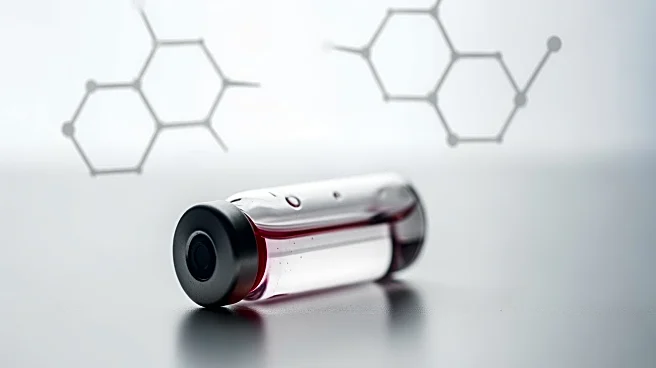What is the story about?
What's Happening?
The Rochester Institute of Technology (RIT) has developed a new machine powered by artificial intelligence to improve the recycling process of clothing. This innovation addresses the challenge of removing contaminants such as screen printing, fasteners, and rivets from garments, which traditionally hinder the recycling process. Recyclers typically require a purity level of 99% in the cotton or nylon extracted from clothing, making the presence of these contaminants a significant obstacle. The machine, created by a research team at RIT's Golisano Institute of Sustainability, is designed to identify and eliminate these impurities, thereby facilitating the transformation of old clothing into new fabric. This development is part of a broader effort to enhance sustainability in the fashion industry by improving recycling methods.
Why It's Important?
The introduction of this AI-powered machine by RIT is significant for the fashion industry, particularly in the context of sustainability. Fast fashion has been criticized for its environmental impact, with large amounts of clothing ending up in landfills due to recycling challenges. By improving the purity of recycled materials, this technology could reduce waste and promote the circular economy within the fashion sector. Brands that invest in durable and repairable designs stand to benefit from this advancement, as it aligns with emerging regulations and consumer demand for sustainable practices. The machine's ability to streamline the recycling process could lead to increased adoption of sustainable practices across the industry, potentially reducing the environmental footprint of fashion production.
What's Next?
The deployment of RIT's AI-powered machine could lead to broader changes in the fashion industry's approach to recycling. As the technology becomes more widely adopted, it may encourage other institutions and companies to invest in similar innovations. This could result in a shift towards more sustainable manufacturing processes and increased collaboration between academic institutions and industry players. Additionally, the success of this machine may inspire further research and development in the field of sustainable fashion, potentially leading to new breakthroughs in recycling technology.
Beyond the Headlines
The development of this machine also highlights the role of artificial intelligence in addressing environmental challenges. By leveraging AI, researchers can create solutions that are more efficient and effective than traditional methods. This innovation underscores the potential for technology to drive significant improvements in sustainability across various industries. Furthermore, it raises ethical considerations regarding the responsibility of the fashion industry to adopt practices that minimize environmental harm and promote long-term ecological balance.














